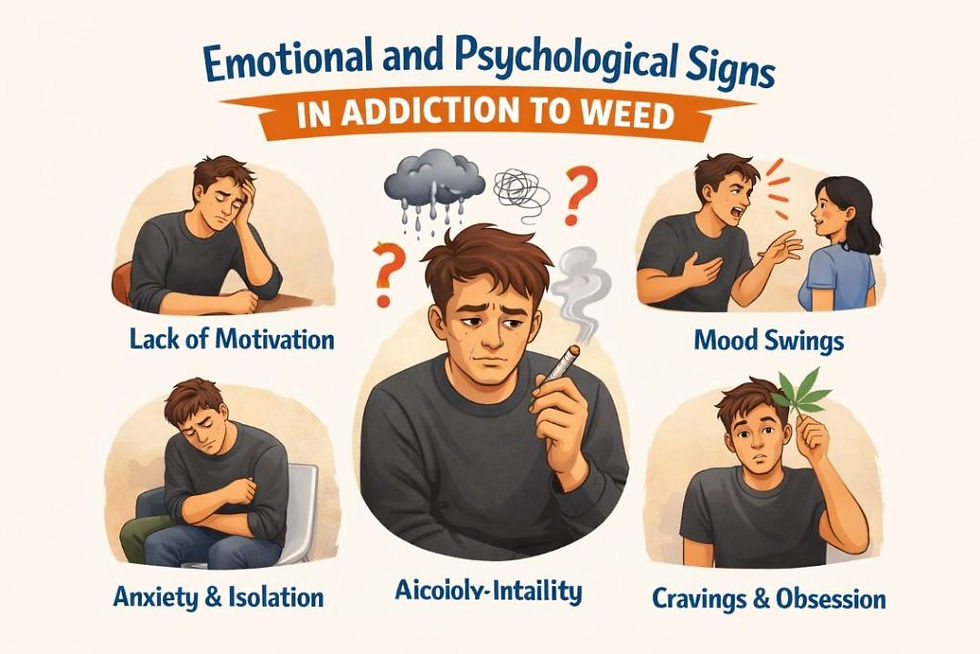Mental Health & Substance Use Disorders: A Comprehensive Guide
- Felicia Parris

- Dec 4, 2024
- 3 min read
Co-occurring disorders, also referred to as dual diagnosis, occur when a person experiences both a mental health disorder and a substance use disorder simultaneously. This interplay often complicates diagnosis and treatment, but with the right care, recovery is achievable. In this comprehensive guide, we will explore the causes, symptoms, and effective treatment approaches for co-occurring disorders.

Understanding Co-Occurring Disorders
Co-occurring disorders are more common than many realize. Studies show that nearly 50% of individuals with a mental health condition will also experience a substance use disorder at some point. Conversely, many people struggling with addiction also face underlying mental health issues like depression, anxiety, bipolar disorder, or PTSD.
Causes and Risk Factors
The relationship between mental health and substance use is complex. Mental health conditions can lead individuals to self-medicate with drugs or alcohol, while substance use can exacerbate or trigger mental health symptoms. Several factors may contribute to the development of co-occurring disorders:
Genetics: A family history of addiction or mental illness increases vulnerability.
Trauma: Experiencing emotional, physical, or sexual trauma is a common risk factor.
Brain Chemistry: Imbalances in brain chemicals like dopamine and serotonin can play a role.
Environmental Stressors: High-stress environments or exposure to substance use can contribute to dual diagnosis.
Signs and Symptoms of Co-Occurring Disorders
Identifying co-occurring disorders can be challenging because symptoms often overlap. However, some common indicators include:
Mental Health Symptoms
Persistent sadness, anxiety, or mood swings
Difficulty concentrating or making decisions
Feelings of worthlessness or hopelessness
Suicidal thoughts or behaviors
Substance Use Symptoms
Increased tolerance to substances
Withdrawal symptoms when not using
Neglecting responsibilities due to substance use
Continuing use despite negative consequences
When these symptoms occur simultaneously, they can worsen each other, making early intervention crucial.
Why Integrated Treatment is Essential
Treating mental health and substance use disorders independently often leads to incomplete recovery. Integrated treatment, which addresses both conditions simultaneously, is considered the gold standard for managing co-occurring disorders.
Benefits of Integrated Treatment
Comprehensive Care: Tackles the root causes of both issues.
Improved Outcomes: Reduces relapse rates and enhances overall well-being.
Personalized Approaches: Tailored to meet individual needs.
Better Support Systems: Encourages collaboration between mental health and addiction specialists.
Effective Treatment Approaches
Several evidence-based therapies and strategies can help individuals with co-occurring disorders achieve lasting recovery:
Psychotherapy
Cognitive Behavioral Therapy (CBT): Helps individuals identify and change negative thought patterns.
Dialectical Behavioral Therapy (DBT): Focuses on emotional regulation and stress management.
Motivational Interviewing (MI): Enhances readiness for change.
Medication-Assisted Treatment (MAT)
For some individuals, medication can help manage symptoms of mental health conditions or substance withdrawal. MAT is often combined with therapy for the best results.
Support Groups
Groups like Dual Recovery Anonymous provide a supportive community for individuals with co-occurring disorders. Sharing experiences and strategies with others facing similar challenges can be incredibly empowering.
The Importance of Holistic Care
Recovery from co-occurring disorders involves more than just managing symptoms. A holistic approach addresses physical, emotional, and social well-being through practices such as:
Nutritional Counseling: Promotes physical health and brain function.
Mindfulness Techniques: Reduces stress and improves emotional balance.
Recreational Therapy: Enhances social skills and overall happiness.
Seek Help Today
If you or a loved one is struggling with mental health and substance use co-occurring disorders, professional help is essential. At DeLand Treatment Solutions, We offer comprehensive, integrated treatment programs tailored to your unique needs. Our team of experts is dedicated to helping you achieve lasting recovery in a supportive and compassionate environment.
Take the First Step
Don’t let co-occurring disorders define your future. Visit DeLand Treatment Solutions and call us at (386) 866-8689 today and begin your journey to recovery. Visit us online at Mental Health and Substance Use Co-Occurring Disorders for more information or to schedule a consultation.



Comments